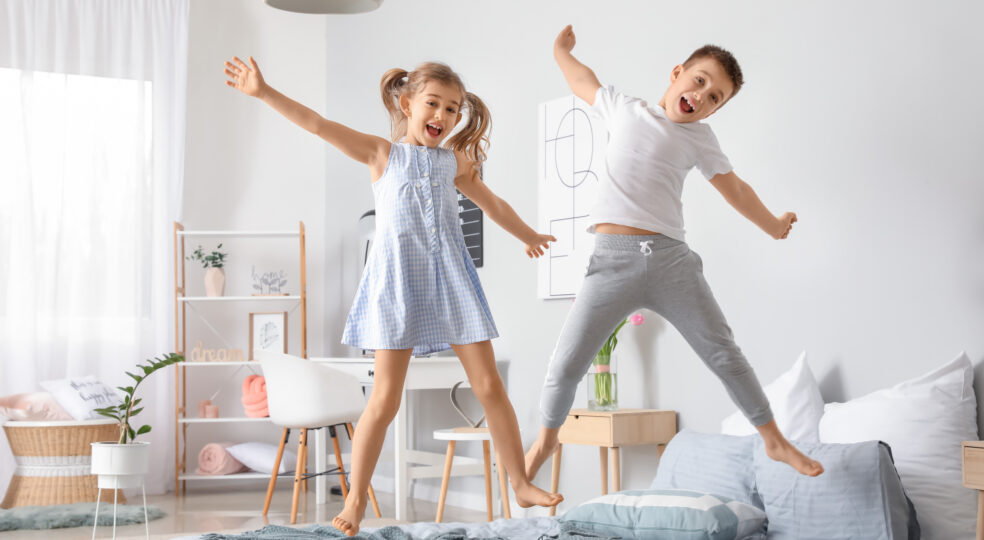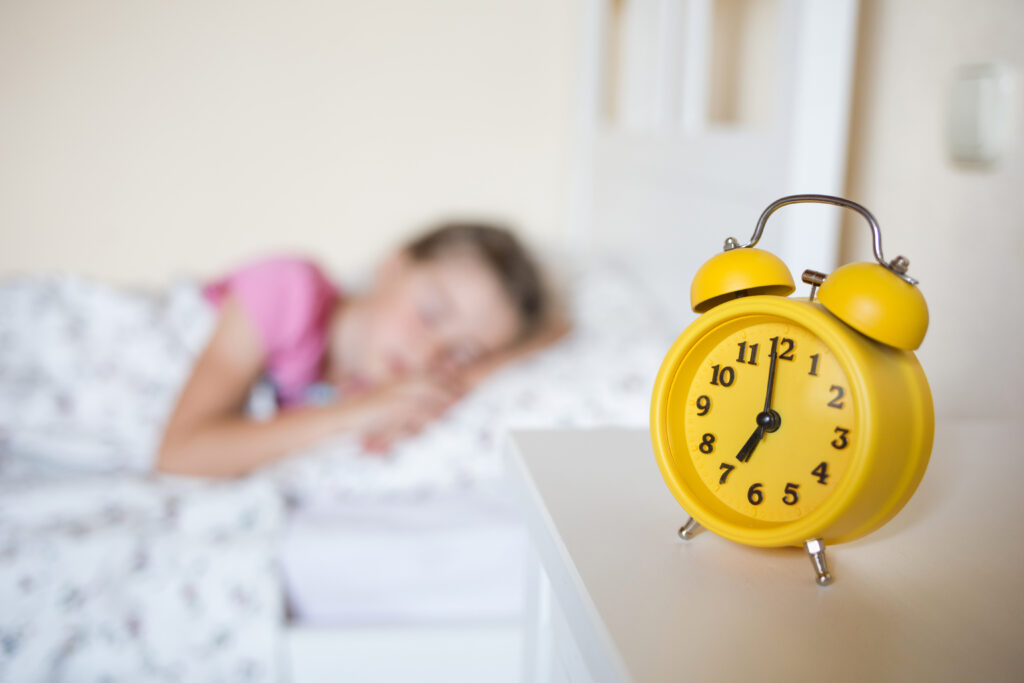
At the supermarket checkout, a child yells again. You shake your head, but the parents don't even bother. The boy, maybe four years old, screams and runs away, knocking over a stack of cans and throwing himself on the floor. What is this? Anti-authoritarian upbringing, or what?
That's the laissez faire parenting style, you'll get later. Now you want to know: What does laissez faire mean? The literal translation of the French term is: let the child do what he or she wants. So the child should do what he or she wants without limits. Whoever came up with this probably meant that any Education the child influenced - in the process, it should develop freely. And that works? It doesn't look like it, as the example in the supermarket shows.
At first glance, the definition of laissez faire resembles the anti-authoritarian parenting style. However, at a closer look, the Laissez Faire parenting style is even more extreme. Children are allowed to make all their decisions without guidance from their parents. Do what you want, that sounds like freedom and individualism at first. But does it really have a positive effect on independence and creativity?
In the laissez faire parenting style, parents remain absolutely passive. They don't set any rules, they leave the children to their own devices, and they don't give any suggestions. Those who choose this parenting style believe that the children benefit from it.
The typical characteristics of the laissez faire parenting style are:

In the typical examples, the passive attitude of the parents is always noticeable. A child with a calm character may withdraw strongly. He paints to himself and actually shows a special creativity. Small works of art are created - not at the desk in the child's room, but on the floor of the living room. One sheet after the other is painted. At some point, the little artist gets up and presents the pictures to his parents. But they wave them off, because there is no praise in the laissez faire parenting style. So after the creative push comes the frustration.
A second example: The child who takes advantage of the lack of rules. Playing with other children, he romps around, doesn't keep to the normal boundaries and ends up running after the soccer ball on his own. The other children look for something else to do: After all, you can't play with him.
For children who grow up according to the laissez faire style of upbringing, the first big break comes when they start school. Previously, they could do anything they wanted. Now regular learning is the order of the day. Sitting still is not an option; instead, the wild child disrupts the lessons and becomes the worst class clown.
In the deliberate anti-parenting, the disinterest of the parents becomes clear. No wonder the children become loners as a result.
Parents who choose the laissez faire parenting style rely on a passive attitude. They have little or no expectations of child development. Education, encouragement and rules - all this does not exist.
In contrast, anti-authoritarian education is not a firmly defined style of education, but a loose educational philosophy. Here there are certain goals. While the laissez faire parenting style shows a certain neglect and indifference, the anti-authoritarian parents are concerned with the well-being of the child. Some Elements of classical anti-authoritarian education have survived to this day. You can recognize them, for example, in the democratic style of education.
In the case of anti-authoritarian education, the following are important Objectives in focus:
This is where the major differences from the laissez faire style of parenting, which dispenses with rules and also encouragement, become apparent.
Within the framework of anti-authoritarian education, parents make suggestions and alternatives to their children. The children have a choice - within a certain framework. On the one hand, they should test out their individual ideas; on the other hand, they should deal with the consequences if something doesn't work out. This is how the little ones learn, Assume responsibility.
Friendly and respectful interaction is typical of the anti-authoritarian method of education. However, too much laissez faire is problematic: Otherwise, you might raise a little egoist.
Children need a certain amount of freedom. But without rules, role models and structures, they lose their orientation. This is precisely the problem with laissez faire parenting. The regular rhythm of life - getting up, eating breakfast, working/learning, free time, going to bed - helps them to find their way in life. In this process, parents automatically act as role models. Children imitate them: they pretend to talk shop on the phone or wish they had a mini-kitchen. They help set the table or draw something on the wall - unfortunately also next to the blackboard.
In the laissez faire style of parenting, there is no praise for helping around the house, and no reprimand for scribbling on the wallpaper. The children do not see their parents as educators, not even as real caregivers. This leads to Problems in many areas. The children also find it difficult to take responsibility for their actions later in life. They become extremely selfish, often dissatisfied and even aggressive. They choose the easiest, most convenient solution and have a hard time, Making friends. These relationship problems already begin in childhood. Difficulties in learning are also pre-programmed.

The advantages of laissez faire cannot stand up to reality and the negative consequences. The advocates of this style of education believe in strengthening the individuality of children. Children should be independent beings who develop their individual values and desires. However, the desire for harmony and freedom usually ends in disaster. Instead of self-employed and creative, laissez-faire children develop into stubborn people who cannot fit into the social fabric. They may be the true individualists - but that doesn't make them happy.
The Disadvantages have significantly more weight. Thus, the laissez faire parenting style shows a close relationship to neglect.
This has several negative consequences:
There is no one best parenting style, because parents do not always act consistently and logically. This is because you as a parent adapt your behavior to the current situation. Your own parenting style is based on a basic attitude that you have to figure out. Parenting also depends on what makes your child tick - and how things are going in the family.
What do you expect from your offspring? What is important to you, what do you want to pass on to your child? Everyone has their own philosophy of life, their individual goals and their preferred parenting style. Strict or anti-authoritarian, the phases often alternate.
Good parenting often has a flexible parenting style as its foundation. This means that you Several styles with each other. There is no one right way. Always think about what is good for your family and your child. Sometimes a little more freedom is necessary, especially in connection with creative hobbies. At other times, tighten the boundaries so that your child doesn't test the limits too much.
Many parents rely on the democratic parenting style, but it is not suitable for every situation. When time is short, you'd rather resort to your authority as a parent. "Come on now, grab your backpack, it's already 7:30" - some days there's no other way. When it comes to free time, it's a little different. Where do you want the field trip to go? What does your child want to do today - first to the zoo and later to visit grandma and grandpa? You vote democratically on such decisions. Other things are decided by you as parents, for example, where to go on vacation. Or should your child have a say in this, too? That's up to you.
In any case, you don't need a strict parenting pattern if you follow the flexible parenting style. Adapted to the situation and as relaxed as possible, respectful and sometimes authoritarian: That can work very well.
You have already become somewhat acquainted with the laissez faire style of parenting. Pure anti-authority, connected with an indifference that tends toward neglect.
Another extreme is the authoritarian education. Here the children have no influence at all in the decision-making processes. What the parents say is law. Good actions by the children draw praise. Small sins are followed by punishment, for example in the form of grounding. The individual wishes of the children do not matter. If a child has special talents, they usually go undiscovered.
At the autocratic style of education this authority increases even more. The dreaded "strong hand" is just as much a part of it as strict rules. Independence, own ideas and wishes are consistently suppressed. The parents are not willing to compromise, but show themselves authoritarian in every respect.
The democratic education on the other hand, is much more pleasant for the family. There are certain rules for the children and the family hierarchy is also fixed. But everyone can express their wishes and make suggestions. Personal initiative is welcome and individual support is also part of it.
At egalitarian style of education parents and children are equal. Duties are also distributed in a balanced manner. Those who consistently follow through with this style grant their children the same say that parents have. This can occasionally lead to a stalemate when decisions are on the line.
The permissive education gives children almost as much freedom as the laissez faire parenting style. Here, the parents also hold back strongly with educational measures. The child should make his or her own decisions and become active, but also take responsibility.
For which of the Parenting Styles you decide depends on your basic attitude to life. With a sense of responsibility and empathy you will find your very own style of child rearing. In many families, a mix of democracy and slightly authoritarian patterns emerges. But remember: the decision for the parenting style lies with the parents and the child's well-being is always the focus.


